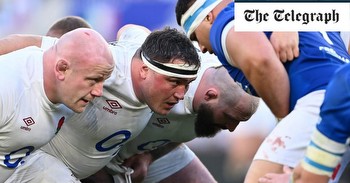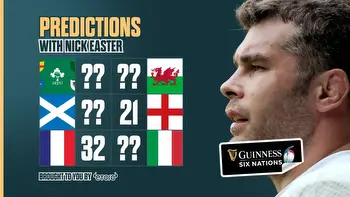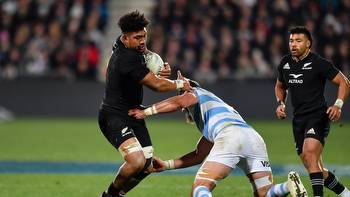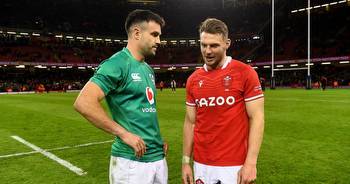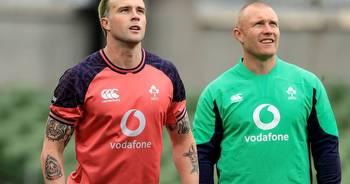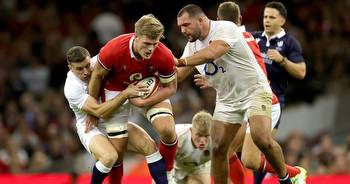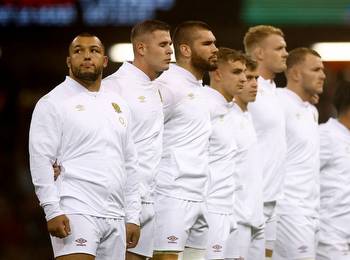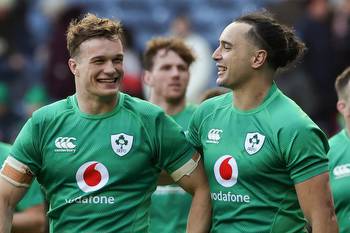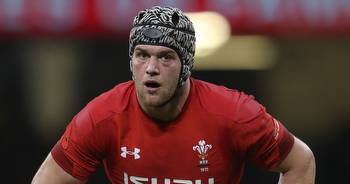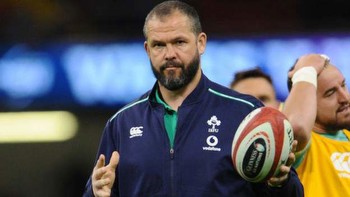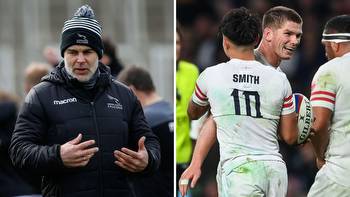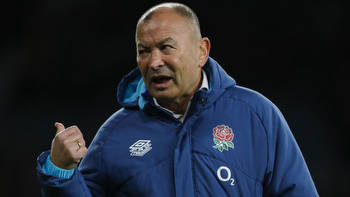Expert Witness: Nick Easter on England's identity crisis as Ireland await

As England run out in Dublin to play their last game of the 2023 Six Nations against an unbeaten Ireland, the odds look stacked against them.
The Aviva Stadium on St. Patrick’s Day? Ireland playing for a Grand Slam? It seems that the best England can hope for is a performance of pride.
Former England number eight Nick Easter joins James While to discuss the match, whilst also looking at how the English are struggling for identity.
Identity crisis
“When Steve Borthwick took over, it was clear that he would need some time to get his strategy, tactics and selections in order ahead of the World Cup. With only nine games to do that, clarity was key for him – clarity of the best way to win – and my biggest concern is England have failed to deliver that clarity,” Easter said.
“Are England unsure of their identity? I think that’s a given – and at the moment, we’re making this worse for ourselves by not sticking to a plan – one week we’re playing tight; one week, we are trying to run it. For me, the biggest issue is we simply don’t know what our better game plan is, and we’re too busy messing around trying to please the random watching public who watch four games of Six Nations a year and comment on social media when the thing that will please the hardcore rugby community and the playing group is grinding out some results.
“Ask yourself which wins the most Tests in the modern era? Power-based plans or skills/pace/running-based plans? Which teams in Test rugby are playing predominantly a skills/pace/running-based game over power platform first? The truth is none of the Test sides other than Scotland are playing a predominantly skills/pace-based game, and they do that because they’ve a clear ID based upon the available players, and they also have power in areas such as wing to add bite to collisions.
“Sheer size isn’t all here – power, game smarts, mobility, breakdown skill and sheer fight are all important factors, but they all combine to make that physicality real, but size sure does help!
“People might argue New Zealand, but the simple truth is they’ve got a monstrous tight five, and their kick/chase game is peerless – power first, pace and skill follow is their mantra, and they’re the best in the world at it,” Easter confirmed.
Rassieball
“Let’s look at a couple of historical teams; firstly, England 2007 – we faced similar challenges, but we realised we had a very good set of forwards with a massive front-row and back five, with Martin Corry, Lewis Moody and myself all well above 6’3” and in the 18 stone plus bracket at that time – but with power and fight key parts of our skillset. We knew we could bash out simplistic powerful collision-winning plans, so we stuck to what we did well, played to our strength and nearly won a World Cup. Simple, pragmatic rugby based upon Jonny Wilkinson’s kicking brilliance, great physicality and an aim to win the collisions based upon the obvious gifts we had.
“Then take South Africa in 2019; when Rassie Erasmus inherited them, they were in dire straights with a win rate of around 40% between 2015 and 2018. Selection was random, strategy was unclear. Rassie simply said that ‘this is the South Africa way – a reliable 10 with a focused kicking game, a great chasing backline, brutal forwards and two X-factor players in Faf de Klerk and Cheslin Kolbe. ‘We’ll smash them with heart and fight and play the DNA style that we understand’. Job done.
“England’s natural DNA is as close to South Africa as it’s possible to get, and I believe that we’re trying to play in manners that are outside the comfort of our natural inclinations. On the two occasions we’ve played that contestables-based game, albeit with lesser focus than I am describing, against Wales and Italy, we’ve won. We then try and play a totally different style against France and get blown off the park. It’s actually worrying why we cannot fix our style based upon our personnel and forget media hype around certain X-factor perceived players,” Easter said.
Absent friends
“I want to caveat this by saying it doesn’t help that our three best back-rows are not available – Tom Curry, Courtney Lawes and, based upon the Top 14, Zach Mercer. The difference in Test match battle-hardened physicality that Tom and Courtney bring cannot be underestimated, and there’s no doubt that they’d dramatically change the tempo around the collision area. But equally, we’ve not tried to play like for like; Ollie Chessum, Ruan Ackermann, Tom Willis, or George Martin would work better in that back-row, as would Maro Itoje moving back a row to where his natural size is more suited.
“If you look across the Test arena at the size of modern flanks you see the likes of Ollivon, Matera, Kremer, Barrett, Mostert, Du Preez, Du Toit and Jelonch as becoming the norm, whereas England still tend to be hampered by slavish tradition of our numbering conventions, which can work in the mud of the Premiership but are less effective on the power grounds of the Test arena.
“But you also need to feed the tactics; whilst I like two X-factor players within a team of what coaches call ‘glue players’, the rest of the backline need to be physical, superb in defence, boss the contestables and to feed off Owen Farrell’s ability to control the aerial kicking contest.
“I fear the horse has bolted, but a midfield of Marchant and Tuilagi, with a scrum back five of Chessum, Ribbans, and four from Lawes, Curry, Mercer and Itoje in the back-row would give focus and power that’s sadly lacking, with Ribbans and Chessum great ball carriers. I also like the addition of Alex Mitchell alongside Arundell as the change-up players.
“Attacking ambition can develop later in the tenure of these coaches. Get back on track and then get the magic in later – become the hardest to beat you can possibly be – in short, for now, simple focused pragmatism is needed – in the selection and in delivery.”
Ireland’s call
“Ireland are a little bit of an outlier in so far as they’re not the biggest side, but on the other hand, they’re picking a focused game to suit the skills they have. Once more, the time they spend together as a team cannot be underestimated, and that’s at the core of their success. They also understand their kicking game and play a longer version than some, based upon wings, who fight for recovery of the ball at speed. Their back five is physical but also coordinated – they know their game, and they know their key tactical foci.
“For England to get anything out of this game, it starts with fight and dog – literally squeezing everything out of the tank in terms of collision and carry – that was absent against France, and again, the clip of Francois Cros demolishing Alex Dombrandt and four clearing players on his own is a perfect illustration of their disorganisation and lethargy.
“Ireland will start red hot to try and blow England away. From the anthems onwards, they’ll be fuelled by the occasion, and their fans and Borthwick’s men will have to repel a green tidal wave for the first 20. To control this, playing territory and controlling exit is absolutely crucial. If England fail to stay in that fight, then they will face another thrashing.
“Could England win? Of course – especially with modern cards changing the course of the game. But this weekend is all about what I said above – becoming the hardest side to beat that you can possibly be.
“My gut instinct says Ireland by 20, but how England responds in spirit, desire, and physicality will determine if Six Nations 2023 was a complete waste of time or if it has some green shoots of promise,” Easter concluded.

